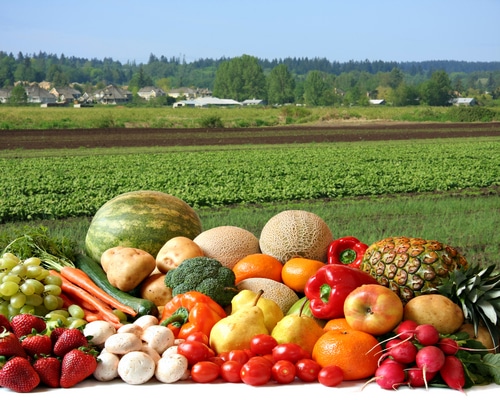
Why is Eating Organic So Expensive?
Logically, you might think that organically-raised food would be less expensive. After all, farmers and food producers don’t have to foot the bill for synthetic pesticides and antibiotics. Unfortunately, that’s not the case. Several factors make organic food more expensive. One is supply and demand. The demand for organic food is soaring beyond the ability of organic farms to produce it. Plus, a smaller percentage of farmland is devoted to organic farming, and these farms produce less than larger conventional farms. Organic farmers also have higher overhead costs because more manpower is required to produce an organic product. They also have to conform to stricter guidelines.
Organic Savings: How to Eat Organic Without Breaking the Bank
Prioritize Your Organic Purchases
Some types of produce are more likely to be contaminated with pesticides than others. These are referred to as “the dirty dozen” and include peaches, apples, sweet bell peppers, celery, nectarines strawberries, cherries, pears, grapes, spinach, lettuce, and potatoes. Make it a priority to buy these foods organic, and stick with conventional sources for other produce items if you’re on a budget. You can reduce your pesticide exposure significantly by simply doing this.
Stock Up in Season and Freeze the What You Can’t Use
Prices of organic fruits and vegetables are lowest when they’re in season, so take advantage of this. You’ll pay more for strawberries if you buy them in November or December when they’re out of season, but Brussels sprouts and bell peppers will still be a bargain. Stock up when you can get them inexpensively, and freeze what you can’t use for later.
Buy From Bulk Bins
For dry items, check out bins at your local health food store or natural food market. These stores are typically more expensive than your local supermarket, but bin items may cost significantly less than the same items packaged at your local supermarket. When you find a sale – stock up. Dry items like oatmeal, grains, and beans will stay fresh for a year or more if you keep them in an air-tight container away from direct sunlight.
Organic Savings: Find Alternative Outlets
Search online for an organic produce co-op in your area. If so, sign up. Check your local farmer’s market too. Not all of the farmers selling at these markets are certified organic growers, but you can question them directly about their farming practices. Some farmers grow their food organically but just haven’t gone through the expensive and sometimes demanding certification process. You may find a local farmer who farms in a safe and responsible manner that you can buy from regularly.
Check local warehouse stores like Sam’s Club and Costco. These discount stores are making the effort to carry more organic products, and they’re likely to be more affordable than buying organic from your local supermarket.
Organic Savings: Be a Coupon Hound
Get on the mailing list of companies that sell or produce organic products so you’ll receive savings coupons when they come out. Go to sites like organicdeals.com to see what coupons are available for the organic products you use. Check the circulars at your local supermarket to see what organic items are on special. Stock up when you can.
Grow Your Own
What better way to control what goes on your food than to grow it yourself? You don’t need a large space to start a small organic garden. You may discover you enjoy being in closer touch with nature and the savings it affords you.
The Bottom Line?
Eating organic doesn’t have to break the bank. Use these six tips to save money on organic foods and products – and stay healthy on a budget.
References:
Organic Consumer’s Association. “Organic Foods on a Limited Budget”
Related Articles By Cathe:
Can You Trust that Organic Food is Actually Organic?
Is Organic Produce Really Free of Pesticides?
5 Reasons Eating Seasonal and Local is Better
Why the Fruits & Vegetables You’re Eating Aren’t as Nutritious as They Could Be
Is Organic Milk Healthier or More Nutritious than Conventional Milk?

